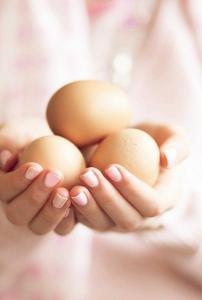
Our egg donors go on to have children of their own if and when they decide. We do this by making sure that certain medical checks are done before you can donate.Īt Cape Fertility, we have facilitated thousands of egg donations over the last 27 years. Even if you donate the maximum number of times allowed by law (six times) you will still have thousands of times more eggs than you need to get pregnant.Įven so, at Cape Fertility, we make absolutely certain that you have ample eggs to donate a few, and that you have more than sufficient eggs to protect your own fertility. The 20 or so eggs retrieved during an egg donation are a tiny percentage of this number. When their menstruation starts, most women have around 200,000 eggs. There will definitely be enough eggs left after donating to have children. When you donate your eggs, approximately 10 to 20 eggs which you don’t need and would otherwise be removed as part of your period, are retrieved to help another woman, who is in need of healthy eggs, because she is unable to produce healthy eggs from her own ovaries to conceive a child.īecause these are eggs that you would not have used, but discarded, egg donation does not affect your ability to get pregnant. Knowing where your eggs come from, how many you might have and how many you lose naturally over time makes it easier to understand why you can still have children after egg donation. When you ovulate each month, unless an egg/s are fertilised, those eggs are removed from your body as part of your monthly period. Usually, only one of them – the strongest egg – will continue to grow, and you will release that egg during ovulation. All these eggs will start to grow, but the majority of those will die out in the ovaries.

#Donate eggs full
When you’re 40, you might only be recruiting 1 or 2 eggs.Īll these recruited little eggs show up in follicles, which look like little black balloons full of fluid on the ovary. When you’re 35, you might be recruiting 7 or 8 eggs. When you’re 30, you might be recruiting 15 eggs. So, for example, when you are younger, you might recruit 20 eggs in a cycle. The number of eggs recruited varies dramatically between different women and will also decline with age.

Several eggs are recruited each month with every menstrual cycle: at times at a faster rate, and sometimes at a slower rate.Īt the very beginning of your cycle every single month, many eggs are recruited, even though you will ovulate only one egg. Women also continuously losing eggs as they go through their menstrual cycles.

The number of eggs is reduced to approximately 200,000 by the time menstruation starts. How many eggs left in your ovaries is termed your ovarian reserve, also commonly referred to as your egg reserve.Īs women grow older, these egg reserves decline. Your ovaries contain all the eggs that are ovulated during your life. Dr Lizle Oosthuizen, one of our highly qualified and impressively experienced fertility specialists at Cape Fertility, shares amazing insights into the ovaries and the eggs in a video about Egg Freezing, some of which are shared below.Įach woman is born with approximately 2 million eggs, and the number of eggs in each ovary has already been determined by the time you are born.


 0 kommentar(er)
0 kommentar(er)
